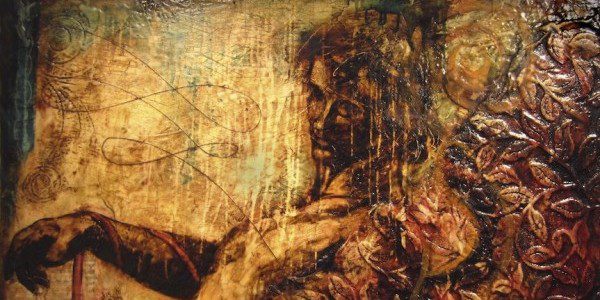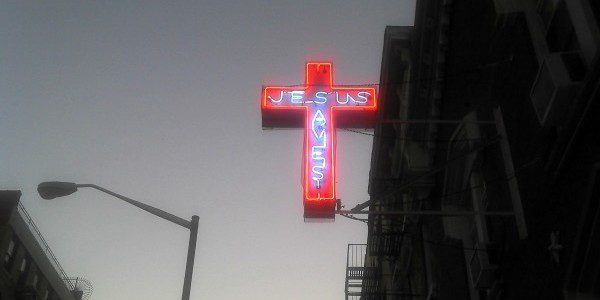Recently a Southern Baptist church in Dallas made headlines with their “freedom Sunday” service, a grandiose display of Christian nationalism.

Flags were waved and the Star Spangled Banner was sung. Many questioned whom or what, exactly, was being worshiped at this church on this Sunday.
This unapologetic display of nationalist fervor is not unique to First Baptist Dallas, led by pastor Robert Jeffress, a well-known Trump supporter. I recall visiting a much smaller church on a July 4 weekend several years ago; they handed everyone a small American flag upon entrance, and then subjected us to an hour-long celebration of the good ole’ USA.
As we head into July 4 weekend, it’s a good time to pause and consider the dangers of conflating nationalism with Christianity. Countless churches will respectfully honor veterans and offer prayers of thanks, of petition, and of repentance related to our country. But others will go off the rails with exuberant celebrations of the USA. Those churches will do harm to the gospel of Christ and to the witness of the church.
Here are ten negative consequences of conflating nationalism and Christianity:
1. Contributes to false assumptions of God’s special blessing or privilege
I think patriotism is well and good, so far as it goes, but patriotism isn’t nationalism. Nationalism involves a view that one’s identity is primarily derived from and secured by the powers of a nation-state, and that geographic, cultural, and racial divisions are crucial to maintaining a pure “nationalist” identity. It also involves an assumption of priority or privilege of one’s nation over against others. To be a “nationalist” is to revel in the distinctive features of one’s own nation and to prioritize the good of one’s own nation against that of others (e.g, “America first!”). It’s hard to see how this reveling and a “my-nation-first” attitude can co-exist with the message of the gospel–which cuts across cultures and peoples and which is inclusive, rather than exclusive. Embracing the gospel means that nationalist lines are blurred and even obliterated by God’s love and justice.
Scripture shows again and again that it’s a bad idea to assume God’s privilege or special blessing, especially when those assumptions contribute to unjust treatment of others outside of your nation, tribe, or people group. When we assume God wants us to have the best seat at the table, we may end up with the least desirable one.
2. Confuses the power of God with the power of the State
The story of the rise of the modern nation-State is at least in part the story of the transition of the language of “Sovereignty” from God to this entity we call the “State” (as Carl Schmitt put it). But when the State, rather than God, becomes the ultimate object of our affection and of our obedience, we are hypnotized into believing that the State possesses divine authority and can therefore do whatever it wants. We are also lured into seeking the adulation and blessing of the State–as if we were seeking God’s approval. When government becomes God (or God becomes government), then gaining political power feels like acquiring God’s favor. And of course, to worship the State as if one is worshiping God is just idolatry, pure and simple–so there’s that.
3. Confuses the gospel of grace with the “good news” of material wealth and security
The gospel, the good news, that Jesus proclaimed certainly has political, economic, and other tangible, real-world dimensions. Jesus didn’t just preach a gospel that said we can go to heaven when we die if we accept Jesus into our hearts. But neither did Jesus preach that you’ll be safe and secure from all harm and threats if you follow in the right path, or if you trust the right people. The gospel of grace contains no promises of preservation from harm–or that you’ll acquire material wealth or comfort. But the message communicated by the conflation of nationalism and Christianity is that prosperity, opportunity, and security are by-products of God’s blessing on our nation. That’s not the gospel.
4. Undermines the separation of church and state
This one is basically the umbrella of the problem, but it should simply be noted that the explicit conflation of nationalism and Christianity runs against our bedrock notion of the separation of church and state–and confuses domains that ought to be held distinct in our theologies and in our practices, even if they do inevitably overlap at times. This is not to say that pastors shouldn’t speak about politically-charged issues or that churches should be disengaged from social problems and even political solutions. I’m not advocating separatism. But let’s be honest: the message communicated when you’re handed an American flag and asked to wave it along with the rest of the “crowd” (to use Kierkegaard’s derisive term) is that worship of God and celebration of the State are seamlessly compatible.
5. Undercuts the prophetic power that Christianity needs in order to be salt and light
While individual Christians can be and very often will be patriotic (and yes, my family and I will enjoy the fireworks displays like everyone else), churches ought to resist collecting and displaying that patriotic energy in the context of the “gathered church.” We ought to preserve our spaces and times of worship for discipleship, repentance, and liturgical worship of God–and we ought to preserve the role of the church to be a prophetic, counter-cultural (when necessary) witness in the world–willing to be critical of our own nation when necessary–rather than a stamp of approval for the powers of the State. In this sense, the church functions as the prophet Nathan, not as King David.
6. Makes us forget that nation-states are a recent development
Many people probably assume that the modern nation-state has always been the way people have organized themselves, and that there’s something eternally fixed about nations and national identity. We forget or perhaps didn’t realize that nations are a relatively recent invention and that there have been plenty of other ways that people have organized themselves socially, politically, economically, and so on. The public display of nationalist pride suggests, if only implicitly, that the nation is as ancient and as divinely ordained as Christianity–or as religion generally. As William Cavanaugh points out, the modern nation state is relatively recent, and is a contingent, not a necessary, phenomena.
7. Undermines the cross
The unapologetic celebration of nationalism overlooks the cross. The cross of Christ as a defining symbol of Christianity means that the Christianity of the Gospels has nothing to do with triumphalism, unbridled military power, or the “might” of the nation. All these are features of a “theology of glory,” not a theology of the cross. I don’t see how anyone can read the Gospel of Matthew straight through, for example, and not be deeply disturbed by any public display that links Christianity (following Christ) with nationalist fervor.
8. Replaces transcendence with immanence
One of the distinctive functions of religious worship is to be a time and a practice where the “sacred” still matters, where transcendence can be sought and experienced in some way, even with only the fleeting sense of mystery. Replacing hymns to the transcendent, holy God with songs celebrating national success and promoting nationalist identity, eclipses transcendence and sacred with immanence and the profane.
9. Disrespects those who have been marginalized by the configuration of powers in the nation-state
In any given Christian congregation, there will be people who do not feel empowered by the ways that social, political, and economic structures work in our country–and who may feel vulnerable, forgotten, or violated. What message is communicated to them when Christian “worship” becomes a celebration of a nation–a nation that they experience as not having their interests at heart?
10. Suggests that the basis of Christian hope is not the counter-cultural Messiah, but the “worldly” powers of the State.
The Christian gospel puts the ultimate source of hope not in external powers, but in the life, teachings, death, and resurrection of God’s Messiah. The Messiah (“Christ”) preached and lived as an alternative to the powers of the Empire, to the powers of Rome. While Christians can and should make use of political processes to improve their lives and the lives of others, they ought not trust in the powers of the State as a replacement for the power of the gospel. “Freedom Sunday” confuses not just the object of worship, but the meaning of freedom itself–as well as the basis of Christian hope for that freedom.











